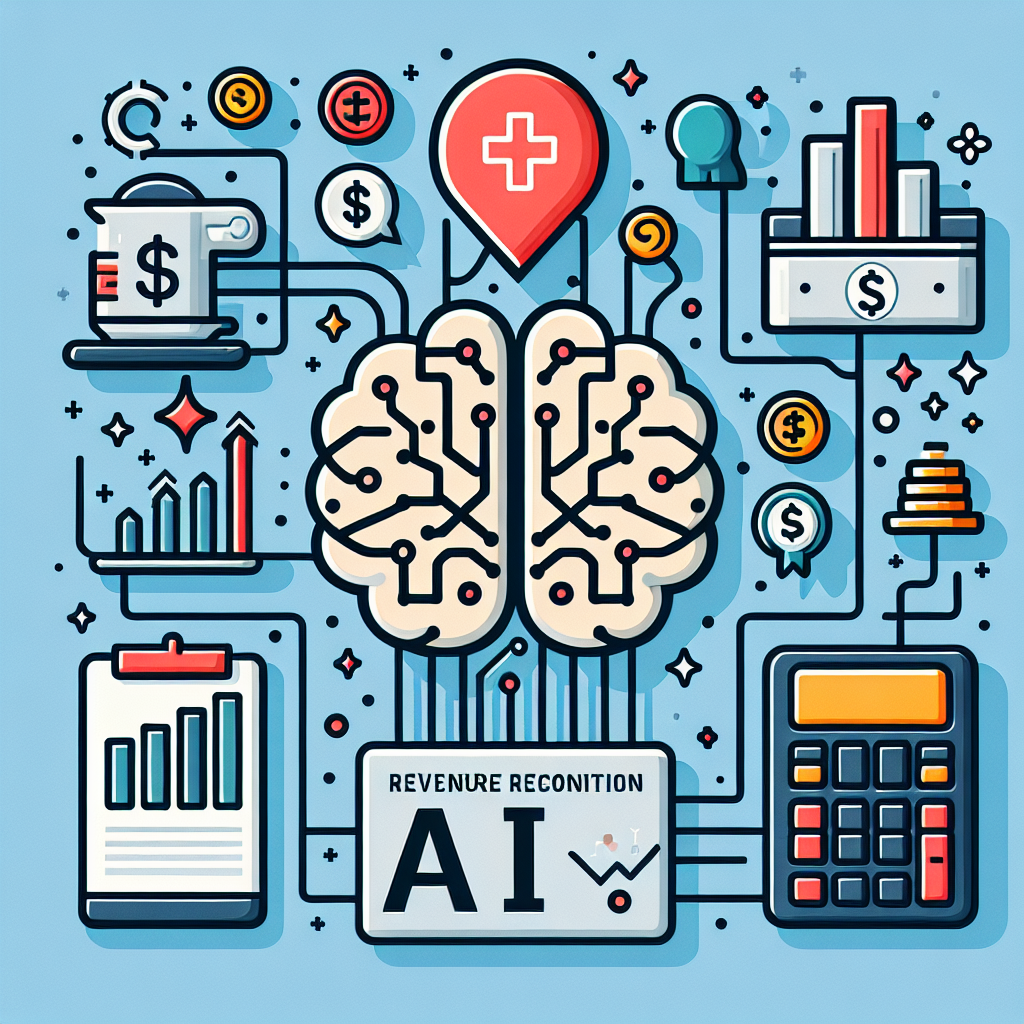Artificial Intelligence (AI) has been revolutionizing the healthcare industry in many ways, including revenue recognition. Revenue recognition is the process of identifying and recording revenue earned by a healthcare organization. AI can help streamline this process by automating certain tasks, reducing errors, and providing real-time insights into revenue streams.
One of the key benefits of using AI in revenue recognition is its ability to analyze large amounts of data quickly and accurately. Healthcare organizations generate vast amounts of data on a daily basis, from patient records to insurance claims to billing information. AI algorithms can process this data much faster than humans, allowing for more efficient revenue recognition.
AI can also help healthcare organizations identify patterns and trends in their revenue streams. By analyzing historical data and comparing it to current data, AI can help predict future revenue trends and identify potential areas for improvement. This can help organizations make more informed decisions about their revenue management strategies.
Another benefit of using AI in revenue recognition is its ability to reduce errors and improve accuracy. Human error is a common problem in revenue recognition, as manual processes can be time-consuming and prone to mistakes. AI algorithms, on the other hand, are designed to minimize errors and ensure accuracy in data processing.
In addition to streamlining revenue recognition processes, AI can also help healthcare organizations improve overall financial performance. By providing real-time insights into revenue streams, AI can help organizations identify inefficiencies and areas for improvement. This can lead to increased revenue and improved financial stability for healthcare organizations.
Overall, AI has the potential to transform revenue recognition in the healthcare industry, making processes more efficient, accurate, and insightful. As AI technology continues to advance, we can expect to see even greater improvements in revenue recognition in the future.
FAQs:
1. How does AI improve revenue recognition in healthcare?
AI improves revenue recognition in healthcare by automating tasks, analyzing large amounts of data quickly and accurately, identifying patterns and trends in revenue streams, reducing errors, and providing real-time insights into revenue streams.
2. What are the benefits of using AI in revenue recognition?
Some of the benefits of using AI in revenue recognition include increased efficiency, improved accuracy, better decision-making, reduced errors, and improved financial performance.
3. How can healthcare organizations implement AI in revenue recognition?
Healthcare organizations can implement AI in revenue recognition by investing in AI technology, training staff on how to use AI tools, integrating AI into existing revenue recognition processes, and continuously monitoring and optimizing AI algorithms.
4. What are some challenges of using AI in revenue recognition?
Some challenges of using AI in revenue recognition include the initial cost of implementing AI technology, the need for staff training, potential data privacy concerns, and the risk of algorithm bias.
5. How can healthcare organizations ensure the accuracy of AI in revenue recognition?
Healthcare organizations can ensure the accuracy of AI in revenue recognition by regularly monitoring and validating AI algorithms, testing AI models against real-world data, and implementing checks and balances to catch any errors or discrepancies.

